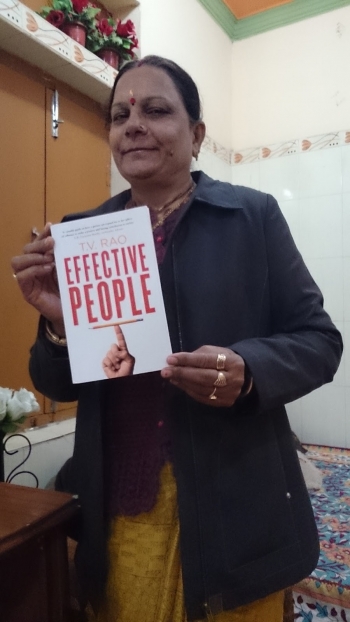
.jpg) F. M. Britto
F. M. Britto
Young Laxmi Gautam was moved by the widows’ plight in the holy city of Mathura. She resolved to do something for them when she grew up.
Even the young widows’ heads were shaven off and they had to wear only white saris. Child brides became widows before they became women. No one respected them after they became widows. Penniless, they had to depend on others even for food and clothes. Some young widows became prostitutes for their survival. The heirless widows were not given decent cremation. Many bodies became prey to street dogs.
Born in 1963 in Vrindavan, Uttar Pradesh, Laxmi studied Hindi and History at Agra University and obtained her doctorate. She was then appointed associate professor at the Institute of Oriental Philosophy, Vrindavan.
After her classes, Laxmi goes to the Yamuna cremation ground, collects the abandoned dead bodies, even the rotten ones, and gives them respectful cremation. She had performed the last rites for nearly 500 widows. She does this noble deed for more than last 30 years. Though her family members opposed her initially, now her two sons and daughter support her. “I’m never scared of the dead; it is the living that frightens me. They can harm you, but not the dead,” she says.
When she got elected deputy mayor in 1995, she instituted medical help and pension plans for the widows of Vrindavan. To provide them basic needs like food, clothes and medical needs, Laxmi started in 2013 an NGO, Kanak Dhara, naming it after her late mother-in-law.
The Foundation has various wings: Kali looks after the safety of women; Umeed helps in educating the underprivileged; Deh Daan promotes body parts’ donation; Moksh does the cremation etc. Her legal wing provides them legal and emotional support, especially to those who were sexually abused. She has helped about 50 widows to rejoin their families. Some 40 widows live under her support.
For all her dedicated works to the widows, both alive and dead, Laxmi was honoured with various awards: the DNA Media in 2015 called her The Angel of Vrindavan, the JCI Vrindavan in 1997 named her Mother of Vrindavan; Real Hero Award by Reliance Foundation in 2013; Jijabi Award by the Delhi University in 2013 and the Rupayan Achiever’s Award by Amar Ujal in 2015.
President Pranab Mukherjee awarded Laxmi the Nari Shakti Puraskar Award in 2015 at the Rashtrapati Bhavan on International Women’s Day. She then recounted to the gathering an incident that moved everyone to tears. She narrated, “I received a call on Holi. An 80 year old woman had been thrown of her house by her sons without any piece of clothing. How many people would have seen her on their way? I have seen worse: dogs eating away abandoned corpses. I’ve washed worm-infested feet of the widows with my own hands before taking them to the hospital. ”
“Our prime purpose in this life is to help others. And if you can’t help them, at least don’t hurt them.” – Dalai Lama